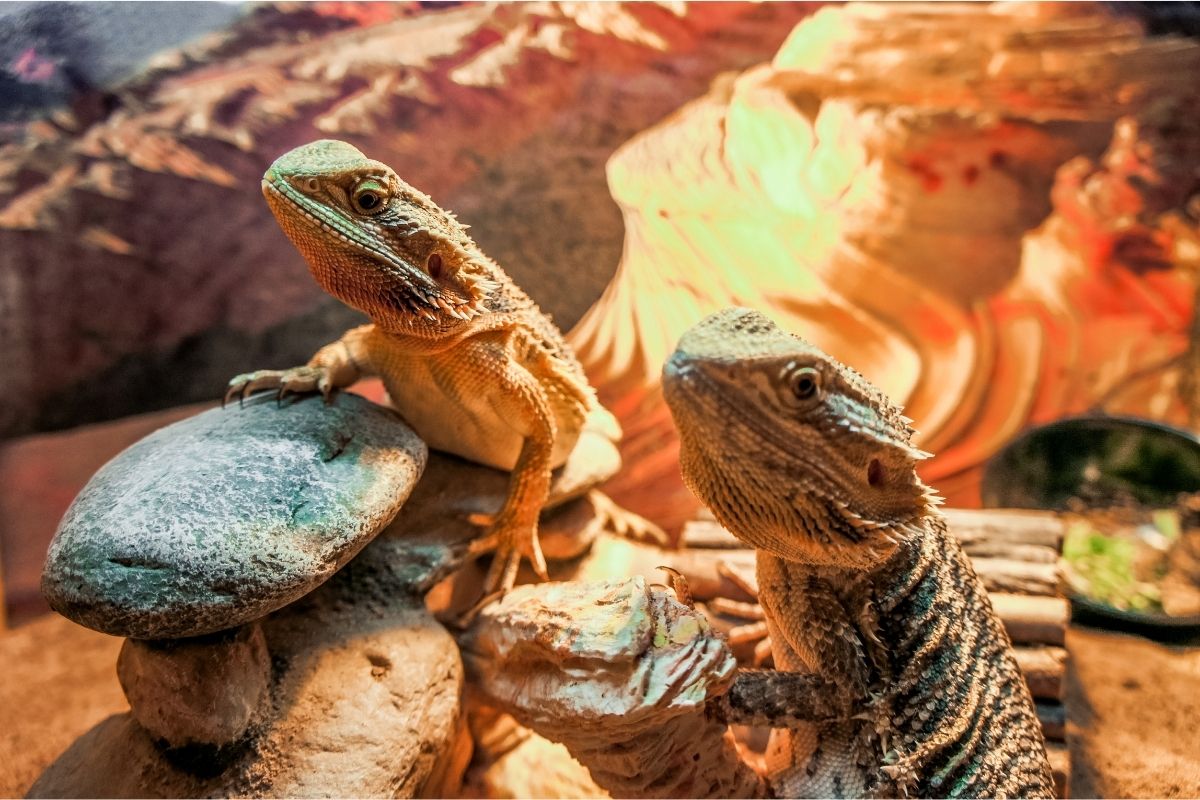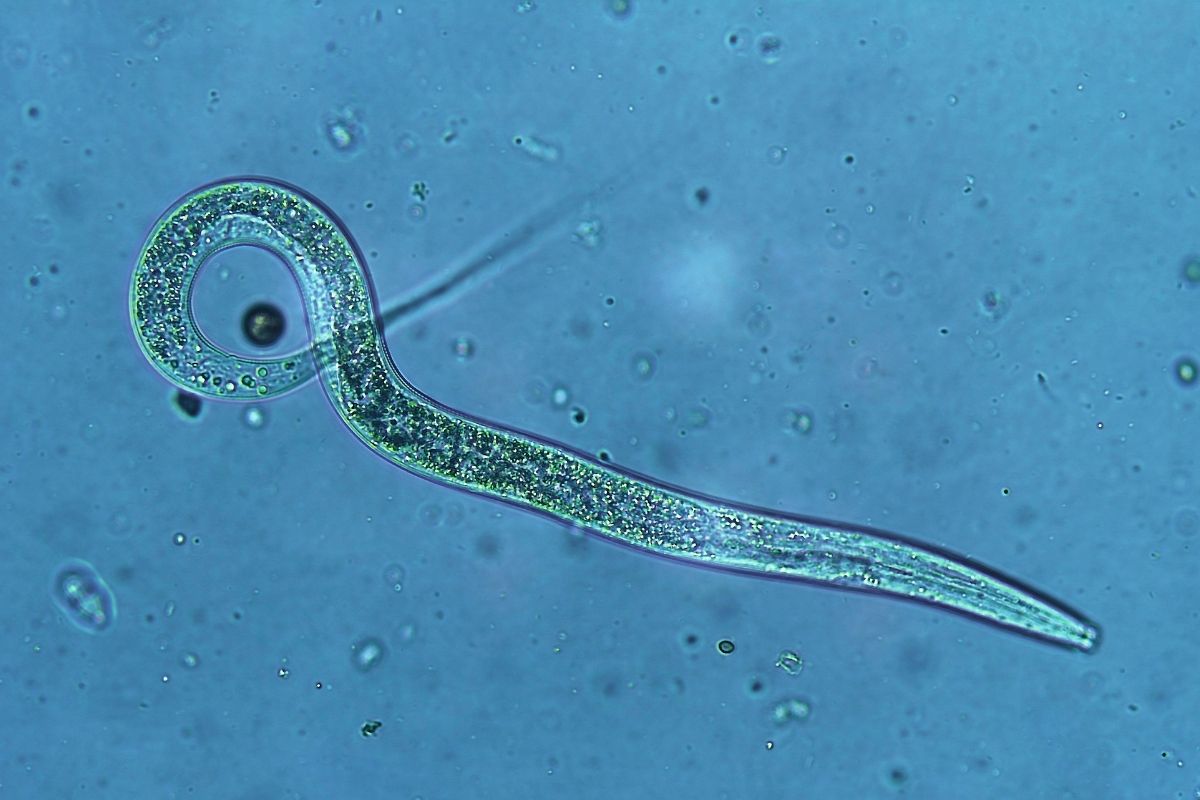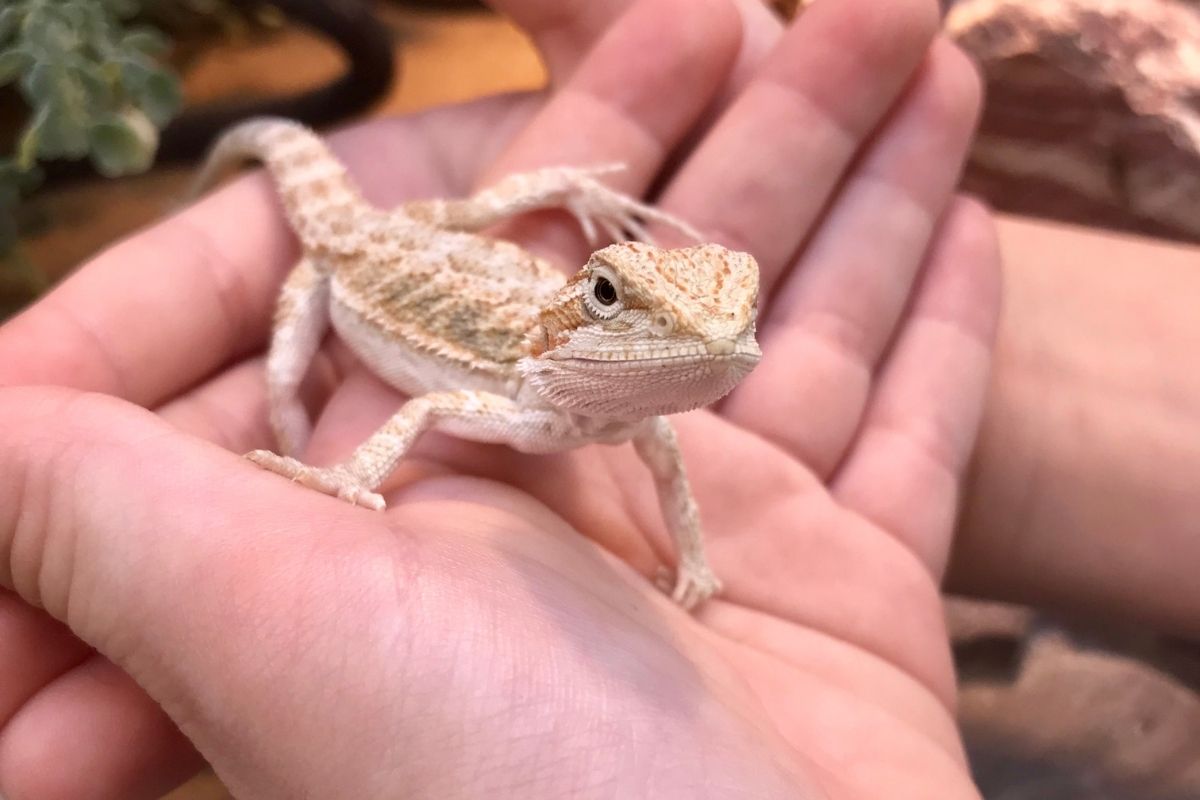Bearded dragons can eat a range of things, from crickets and mealworms to leafy greens.
Fish seems like a great tasty treat with a lot of nutritional value for reptiles.

But is it really safe to feed fish to your bearded dragon?
We take a look at what you can feed your beardie and why you need to be careful what you feed your pet.
Can Bearded Dragons Eat Fish?
Yes, bearded dragons can eat fish. Bearded dragons are quite capable of eating fish, but it is not always recommended.
Fish can contain bacteria and parasites, which could make your bearded dragon sick.
If you feed your bearded dragon fish that carry any disease, this could be the cause of sickness.
To be absolutely sure it is best to avoid giving your pet reptile any fish. In addition, fish isn’t typically part of the diet of a wild bearded dragon.
If you want to give your bearded dragon some fresh fish, try to buy it from a reputable pet store.
Make sure the fish is clean and healthy before giving it to your reptile.
If you do decide to give your bearded dragon fish, keep in mind that it will need to be as fresh as possible.
Why You Shouldn’t Feed Fish To Your Bearded Dragon?
There are many reasons why you shouldn’t feed fish to your bearded dragon. First off, fish are high in fat content.
This means that if your bearded dragon eats too much fish, he or she may gain weight.
Another reason why you should not feed fish to your bearded dragons is that fish have bones.
These bones can easily break inside the digestive system of your bearded dragon.
Also, some fish, such as goldfish and red minnows, contain enzymes that break down the Vitamin B1 production in the digestive system of a bearded dragon.
And bearded dragons need Vitamin B1 as a vital energy source. If bearded dragons eat goldfish or rosy red minnow, they may become sick.
What’s more, fish can also contain mercury, lead, and other heavy metals. These toxins can accumulate in the body of an animal over time.
So while you might think that fish would be a good idea for your bearded dragon, there are actually plenty of reasons why you shouldn’t give them fish.
What Type Of Parasites Do Feeder Fish Carry?
Parasites are organisms that live within another organism. Some parasites are harmful to humans and reptiles; others aren’t.
Some types of parasites found in fish include:
Tapeworms
Tapeworms are flatworms that live in the intestines of their hosts. They attach themselves to the intestinal wall and suck the blood out of the host.
Flukes
Flukes are parasitic roundworms that live in the intestine of their host. They attach themselves to their host by attaching themselves to the intestinal wall.
Eustrongylides

These are nematodes (roundworms) that infest the lungs of their host. They are often seen in larger fish, such as trout.
So, if you are out fishing and want to share your catch with your beardie, remember that river fish may carry parasites that are dangerous for your bearded dragon.
How Much Fish Can You Give Your Bearded Dragon?
It depends on what kind of fish you’re talking about. Some types of fish are better than others when it comes to being fed to your bearded dragon.
As mentioned, you should avoid rosy red minnows and goldfish as they contain enzymes that might make your bearded dragon ill.
If you do want to feed your bearded dragon fish, then this should only be an occasional treat.
Nutritional Value Of Fish For Reptiles
The nutritional values of fish depend on the type of fish you choose.
There are several different kinds of fish available, so choosing one that is right for your bearded dragon is important.
When looking at the nutritional information of raw fish, remember that most fish is very fatty.
These Omega-3 acids are great for humans and other pets, but they aren’t necessarily beneficial for reptiles.
In fact, these fats can actually harm your reptile by clogging up their liver and kidneys.
So if you plan on feeding your bearded dragon fish, make sure you feed fish only as a treat.
Also, when feeding your bearded dragon fish, make sure to use small pieces.
What Should Bearded Dragons Eat?
Bearded dragons thrive best on a varied diet, including vegetables and live food, which is a great source of protein. You should also add good reptile food.
The best live food for bearded dragons is crickets, Dubia roaches, and locusts. It’s best not to feed super worms or mealworms as a main food.
Worms are best kept as occasional treats, as they are quite fatty, which can quickly increase the weight of your bearded dragon.
Here’s what to feed bearded dragons at different stages of their development.
Diet For Baby Bearded Dragons
Baby bearded dragons need to eat more than adults. This is because babies have much smaller stomachs and therefore require more food per day.
They could eat all day if you keep offering baby beardies food.
You can start baby bearded dragons off on a diet of live food. This should be given at least once a day.
In addition, you should also provide fresh veggies, although you may find that small dragons will enjoy the live food much more.
Diet For 6-Month-Old Bearded Dragons

At around six months old, your bearded dragon will begin growing bigger and eating less.
You should still offer him some live food, so you can feed crickets up to 4 times a week. However, you should offer fresh vegetables every day.
If your young beardie needs a little more weight, for example, after recovering from an illness, then you can easily feed him some more live food.
But you will be surprised how quickly your reptile gains weight by eating crickets.
Diet For Adult Bearded Dragons
Once your bearded dragon reaches adulthood, he will need live food only 2 or 3 times a week.
You should offer vegetables around 6 days per week. For adult beardies, you should also introduce a fasting day when they only drink water.
This reflects their natural habitat when there is occasional food scarcity, and bearded dragons may not be able to feed every day.
Bearded dragon owners often find themselves surprised by how quickly their pet gains weight.
For this reason, it is essential that you keep an eye on the types of foods you feed your animal.
You should also make sure that you feed leafy greens with a high water content. Water is important, and sometimes reptiles don’t drink enough.
Frequently Asked Questions
Can Bearded Dragons Eat Cooked Fish?
You should avoid feeding your bearded dragon cooked fish and any other type of fish.
Fish can contain bacteria and parasites, which can be harmful to your reptile.
What Meats Can Bearded Dragons Eat?
There are many types of meat that you can safely give to your bearded dragon. These include chicken, lean steak, and turkey.
Remember to feed only unseasoned meat to your bearded dragon.
It’s also important to bear in mind that meat can be very fatty, so it’s best to feed your bearded dragon as little meat as possible.
Can Bearded Dragons Eat Scrambled Eggs?
It is safe to feed scrambled eggs to your bearded dragon. You should use eggs that are free-range and organic.
Make sure that you don’t add any other ingredients, such as salt or bacon.
The yolk contains vitamins A and D, which is beneficial for your bearded dragon. They can also eat boiled eggs.
However, bearded dragons should eat only half an egg at one time, or you may notice digestive issues with your animal.
Conclusion
Your bearded dragon should always have access to fresh vegetables and live foods regularly.
Foods like mealworms and fish can be used as an occasional treat, but you need to be very careful that they do not contain any parasites.
Bearded dragons should also be fed a healthy, balanced diet.
Remember that they do not require a minimum amount of protein but also a good mix of vitamins and minerals.
As well as providing them with a varied diet, you should also ensure that they get plenty of fresh water.
Pet owners need to keep an eye on the weight of their bearded animals because these reptiles can gain weight very quickly.
